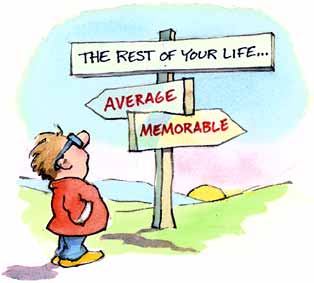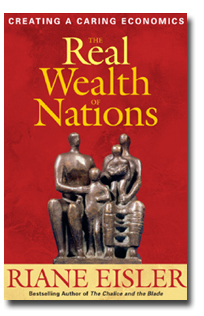Klout and Happiness 
Okay, sometimes I don't get the "latest" right away but eventually it gets to me from the network via Facebook and Twitter. Juxtaposed with the frantic information shared daily is the wisdom that comes from slowing down and meditating on a daily thought or prayer.
Joan Dwyer of All That Matters gave me the "Book of Daily thoughts and Prayers" by Swami Paramnadanda. (Yes, you can download dailies online). The creative tension of consuming lots of data while also focusing on living thoughtfully has become our collective tension (do more, be more vs. focus on one thing, be well). So today's post brings me to one's relevant influence.
Yesterday, I got a bunch of posts from the mommy blogosphere who were all over Klout yesterday. It seems I have been what Peter Shankman (thank you, Michelle Girasole, for his recommended reads) would call "under 1/2 mile of earth for the past 69 days". I had to look it up. Klout assigns social media users a "score" for measuring their influence in the online world. They measure variety, depth, and scope. Here we are with another tool to measure one's worth (as if the scale, body fat, Facebook friends, and Tweeter feeds weren't enough.) But this time, it is an "influencing" tool that actually is relevant for companies to get the scoop on you and sell or give you goodies.
The argument is about targeting, getting ahead ("he who dies with the highest Klout score wins") and that the inherent relevance of you is really about how relevant you are to a certain product, good or service. Yet, it is here to stay and the bloggers who making money by traffic, ads, selling more stuff, are eating it up...such is the way our GDP is, 70% based on consumers buying and a quantitative measure of a country's overall economic output. 
What about other measures? In Riane Eisler's book "The Real Wealth of Nations" she compares countries with Gross Domestic Product measures with Quality of Life measures (seen as more qualitative and really a goal of GDP, one would think.) She shows repeatedly that the countries with the highest GDP didn't necessarily also have the highest quality of life. (See America's fact sheet.) Both need to be part of the equation, yet clearly it is time to align what we value in life with our economic output.
What if we change our measures? Good news: statistician Nic Marks does just that. Watch as Marks explains the Happy Planet Index, his alternative to GDP, and what it tells us about which countries are really the happiest.
